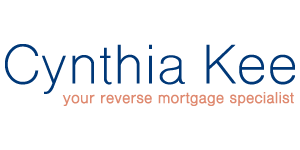Summer resources for you…
Dear Friends, Colleagues and Neighbors,
You’re not a number, you’re family to me. I remain committed to helping you achieve your financial goals. Being able to sit and visit with you face to face allows me a deep understanding of what is important to you, and better helps me assist you in navigating through the reverse mortgage process.
A heartfelt thank you to each one of you who have so graciously allowed me to walk through the process of your loan with you, as well as referring neighbors, friends and family my way. It is such a blessing for me to witness the exciting changes that happen in the lives of my clients due to this incredible mortgage program.
—Cynthia Kee
12 Steps to Happiness
From Sonja Lyubomirsky, The How of Happiness
Do more activities that truly engage you
Savor life’s joys
Learn to forgive
Practice acts of kindness
Nurture relationships
Cultivate optimism
Avoid over-thinking and social comparison
Develop strategies for coping
Count your blessings
Strengthen your spiritual connections
Commit to your goals
Take care of your body
The Value of Financial Advice
By Wade Pfau
I am often asked whether it is worth the cost to hire a financial advisor. That is an excellent question with an answer that depends on many factors.
Good financial planning decisions extend well beyond where and how you invest. Two major research efforts have attempted to quantify how good financial decision-making can enhance one’s lifetime standard of living. It is important to understand what this research means, because this may not always equal a higher portfolio return in the short term. The research identifies how good financial management can enhance sustainable lifetime income on a risk-adjusted basis. The ability to spend more than you could have otherwise can be interpreted as meaning that the assets earned a higher return net of taxes and fees to make that spending possible.
In the field of finance, achieving “alpha” means earning more money than expected. This generally is achieved through either timing market trends correctly or picking winning individual securities.
In practice, it is very difficult to achieve alpha from market timing and security selection, which explains the rise of indexing. Low cost index funds generally perform better than the majority of actively managed funds seeking alpha, at least after accounting for management fees. After fees, alpha is often negative for actively managed funds. Those who understand this point can dramatically simplify their portfolio by filling it with well-diversified low-cost index funds. Financial advisors who only focus on selecting investments will really struggle to add value.
Reverse Mortgages — a Potential Tool for Financial Professionals and their Clients
By Shannon Hicks
According to the U.S. Census Bureau, the typical married couple entering retirement has $92,000 in non-equity assets and $192,000 in home equity. With that in mind does it really make sense to advise a client to sell securities in a down market to maintain their retirement cash flow without mentioning home equity?
In Jamie Hopkin’s recent article in Investment News Hopkins says, “Far too many financial advisers overlook home equity as part of a retirement income plan. With heightened regulatory concerns about doing what is in the best interest of the client, it would be prudent to explore and discuss home equity strategies with clients.”
Consider a client over age 62 with $300,000 in home equity. If the market is down 25% is it truly in the client’s best interest to sell stocks at a loss without at least considering what may be their largest asset?
The Home Equity Conversion Mortgage (HECM), better known as the reverse mortgage, is an FHA-insured mortgage for homeowners 62 or older which allows them to access a portion of the equity in their home without requiring monthly mortgage payments.
One strategy is the standby reverse mortgage. This approach allows the homeowner to secure a HECM line of credit. This credit line is unique in that the unused portion grows each year, no payments are required and the credit line cannot be frozen or reduced if housing values were to fall as long as the borrower meets the ongoing obligations of the loan.
Utilizing the standby reverse strategy one could access a portion of the HECM line of credit to meet income needs in years when the market is down allowing the portfolio to recover. A great way to overcome sequence of returns risk. Several Monte Carlo simulations have shown this approach to substantially increase the longevity of the portfolio and sustainable withdrawals.
Curious?
Reverse mortgages can be a viable option for many senior homeowners seeking to make changes in their lives they may not have thought possible. Is a Government Regulated Reverse Mortgage right for you? Get the facts. I welcome the opportunity to help demystify the process and share my knowledge and expertise with you. Feel free to call me at 707-812-2102 for your complimentary personal assessment.
When you refer a family member or friend who funds a reverse mortgage with me, I will donate $250 in your name to a charity of your choice.



